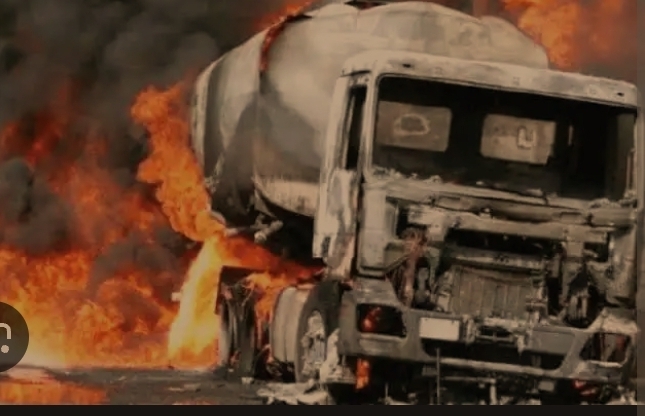Petrol tanker explosions in Nigeria have become a pressing concern, with alarming statistics revealing that no fewer than 555 people lost their lives between January 2020 and January 2025. Data from the Federal Road Safety Commission (FRSC) has highlighted the severity of these incidents, prompting urgent discussions on safety measures and regulations.
According to Joyce Alexander, the Sector Commander of the FRSC in Anambra State, these fatal accidents have caused extensive loss of life and destruction of property.
Speaking at a town hall meeting on “Tanker and Trailer Safety Challenges in Nigeria” in Awka, she outlined the staggering figures:
2020: 18 tanker explosions, 161 deaths.
2021: 19 tanker explosions, 55 fatalities.
2022: 14 tanker explosions, 76 deaths.
2023: 13 tanker explosions, 118 fatalities.
2024: 13 tanker explosions, 85 casualties.
January 2025: 7 recorded tanker explosions.
Recognising the severity of the situation, the FRSC has proposed several strategies to curb tanker-related accidents:
Strict Enforcement of Speed Limits: Ensuring that haulage vehicles are equipped with speed-limiting devices.
Regular Training for Drivers: Educating tanker operators on road safety measures and responsible driving habits.
Vehicle Inspection and Maintenance: Mandating periodic checks to identify and fix mechanical faults before tankers hit the road.
Legislative Action: Introducing harsher penalties for tanker owners who fail to comply with safety standards.
Establishing Rest Areas: Providing designated stops to prevent fatigue-related accidents.
Uche Noah, a Chief Superintendent of Police and the Divisional Police Officer of ‘B’ Division, Awka, urged drivers to avoid alcohol and illicit substances while on duty, which significantly contribute to road accidents.









